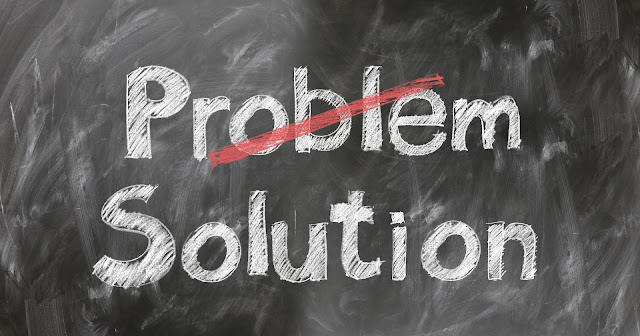In today's complex and rapidly changing world, the ability to solve problems effectively is a valuable skill. Developing positive problem-solving skills not only empowers individuals to overcome challenges but also fosters personal growth, resilience, and adaptability.
This article explores practical strategies to enhance problem-solving abilities and cultivate a positive mindset toward addressing difficulties.
Embrace a positive mindset:
Developing positive problem-solving skills begins with adopting a positive mindset. Embrace the belief that every problem carries within it an opportunity for growth and learning. Instead of viewing problems as obstacles, reframe them as chances to develop new skills, gain experience, and improve oneself. Cultivating optimism and resilience allows for a proactive and solutions-oriented approach.
Develop critical thinking skills:
Critical thinking is a fundamental component of effective problem-solving. It involves analyzing information, evaluating options, and making informed decisions. Enhance critical thinking skills by actively seeking diverse perspectives, challenging assumptions, and examining problems from various angles. This helps develop a broader understanding of the issue at hand and generates innovative solutions.
Define the problem:
Clearly defining the problem is essential for efficient problem-solving. Take time to identify the root cause, understand the underlying issues, and establish specific goals. Ask relevant questions to gather pertinent information and gain a comprehensive understanding of the problem. Clarity of purpose enables focused and targeted problem-solving efforts.
Foster creativity and brainstorming:
Unleashing creativity and engaging in brainstorming sessions can unlock unique and innovative solutions. Encourage idea generation without judgment or criticism. Explore different perspectives and encourage participation from diverse individuals. Embrace unconventional ideas, as they can often lead to breakthrough solutions that traditional approaches may overlook.
Break down complex problems:
Complex problems can feel overwhelming, but breaking them down into smaller, manageable components makes them more approachable. Analyze the problem and identify its sub-components or underlying issues. By dividing the problem into smaller parts, you can tackle them systematically, gaining momentum and building confidence as you progress.
Seek collaboration and diverse perspectives:
Collaboration brings together different skills, knowledge, and perspectives to solve problems more effectively. Engage with others who possess different experiences and expertise, fostering a collaborative environment that encourages idea-sharing and mutual support. Diverse perspectives can shed new light on the problem, leading to comprehensive and creative solutions.
Experiment and learn from failures:
Embrace a growth mindset that perceives failures as learning opportunities. Experimentation allows for trying out different solutions and adapting strategies as needed. If a solution does not yield the desired outcome, evaluate the results, learn from the experience, and refine the approach. Every failure brings valuable insights and contributes to personal growth and improved problem-solving skills.
Practice reflection and continuous improvement:
Regularly reflect on problem-solving experiences to identify strengths, weaknesses, and areas for improvement. Consider what strategies worked well and what could be done differently next time. Encourage continuous learning and development by seeking feedback from others and actively seeking out opportunities to enhance problem-solving skills.
Conclusion:
Positive problem-solving skills are essential in navigating the challenges of life. By embracing a positive mindset, developing critical thinking abilities, fostering creativity, and seeking collaboration, individuals can enhance their problem-solving skills. Remember to break down complex problems, experiment, learn from failures, and practice reflection for continuous improvement. With dedication and practice, anyone can develop positive problem-solving skills that lead to more effective and rewarding outcomes in both personal and professional spheres.
Resources:
Books:
- "Critical Thinking Skills: Effective Analysis, Argument and Reflection" by Stella Cottrell
- "Problem-Solving 101: A Simple Book for Smart People" by Ken Watanabe
- "Design Thinking: Understanding How Designers Think and Work" by Nigel Cross
- "Thinking, Fast and Slow" by Daniel Kahneman
- "The Lean Startup: How Today's Entrepreneurs Use Continuous Innovation to Create Radically Successful Businesses" by Eric Ries
Online Courses and Platforms:
- Coursera: Offers a wide range of courses on critical thinking, problem-solving, and decision-making.
- edX: Provides online courses from leading universities, including topics like problem-solving skills and critical thinking.
- LinkedIn Learning: Offers various courses and video tutorials on problem-solving techniques and strategies.
- Udemy: Provides a range of courses on problem-solving skills, creative thinking, and decision-making.
Websites and Blogs:
- MindTools (www.mindtools.com): Offers a wealth of resources, articles, and tools on problem-solving techniques and skills.
- Harvard Business Review (hbr.org): Features insightful articles on problem-solving, decision-making, and critical thinking.
- Creative Problem-Solving Institute (www.creativeeducationfoundation.org): Provides resources and information on creative problem-solving methodologies and techniques.
Online Communities and Forums:
- Reddit: The subreddit r/problem-solving is a platform where you can engage with others and discuss various problem-solving strategies and approaches.
- Quora: A question-and-answer platform where you can find discussions and insights on problem-solving and critical thinking.
Workshops and Seminars:
- Local colleges and universities: Check their course catalog or professional development programs for workshops or seminars on problem-solving skills.
- Professional training organizations: Look for organizations that offer workshops or training sessions focused on problem-solving and decision-making in your field of interest.
- TEDEd: Five Tips to Improve Your Critical Thinking (video)
Remember, practical application and continuous practice are essential for developing problem-solving skills. These resources can provide guidance and knowledge, but actively applying what you learn in real-life situations is key to improving your abilities.

Comments
Post a Comment